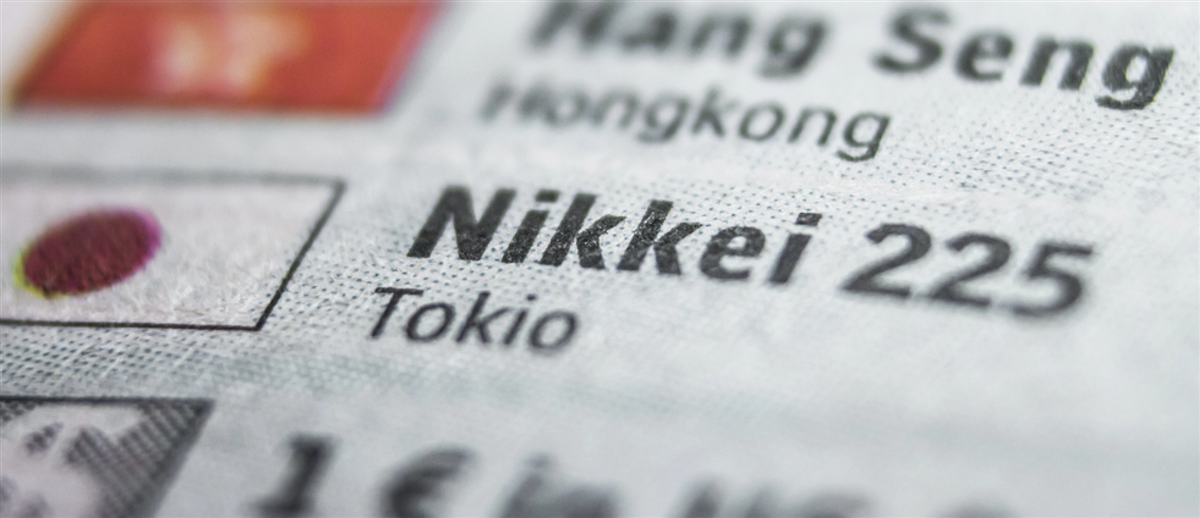
Most investors, retail and professional, no matter where they are located in the world or what they invest in, tend to believe that the United States stock market operates in a vacuum. This couldn't be further from the fundamental truth, and investors would benefit from remembering that the stock market is a forward-looking reflection of the economy itself.
So, if the economy operates co-dependent with other international markets such as Japan and China, it would make sense to expect all good things happening in different markets to affect the S&P 500 positively and vice versa. This is why the 20% (and growing) sell-off being reported out of the Nikkei 225 index (Japan's version of America's S&P 500) is starting to influence markets worldwide.
Sell-offs in stocks like Toyota Motor Co. (NYSE: TM) have sent one of Japan's most prominent companies to trade at only 70% of its 52-week high, which is not far from comparing the recent sell-offs in one of the S&P 500's darling names like Apple Inc. (NASDAQ: AAPL). Following the broader market sell-offs, Apple shares have been trading lower by 8% over the past week. Here's a breakdown for investors still wondering how Japan's situation might affect America's.
Money Knows No Borders: The Global Reach of Central Banks
Toyota stock was trading at an all-time high just four months ago, in April 2024. So, what happened to that blue-chip Japanese name? More importantly, how does that affect stocks in the United States? Well, it’s all about manufacturing and currency exchanges.
The dollar-yen exchange started rising to levels not seen since the 1980s, which was one of the bullish factors for Japan’s economy and its stocks. As a net exporter, having a weaker currency to the dollar places Japan’s exports at an advantage since foreign buyers can afford more exports with their now relatively stronger currencies.
This is why stocks like Toyota had no issues rallying to new highs, as further exports were expected to continue due to a weaker yen. However, the Bank of Japan (BOJ) recently decided to step in to raise interest rates directly and intervene with their falling currency, and with higher rates comes a stronger currency.
As investors can guess, the next domino to fall after a stronger yen is weaker exports, one of the main reasons Toyota is selling off by over 30% in two quarters. Knowing that Japan is stepping out of the global export market, this nation’s spot is available for the taking, and the U.S. is looking to fill it soon.
Of course, this implies that the dollar has to be weaker to stimulate the manufacturing sector onshore. This is a big ask after investors realize the space has been on a consecutive 21-month contraction, judging by the ISM manufacturing PMI index readings.
However, there are some on Wall Street who are already taking the view of a weaker dollar to the bank. Among these is the Oracle himself, Warren Buffett.
A Weaker Dollar Doesn't Have to Mean Stock Losses
Historically and truly, a weaker dollar is typically bad for the S&P 500 but also good for everything quoted in dollars. One example is oil. Since the price per barrel is quoted in dollars, a weaker dollar will directly translate into more expensive oil.
This is why analysts at Goldman Sachs expect to see the price of oil at $100 a barrel this year and also why Warren Buffett—after a nine-day buying streak—ended up owning up to 29% of Occidental Petroleum Co. (NYSE: OXY). To amplify his view, Buffett also (reportedly) sold half of his stake in Apple stock in the recent quarter.
Adding to the good news, investors can look further into the energy sector and expect to see rising earnings per share (EPS) in that space, namely within the Energy Select Sector SPDR Fund (NYSEARCA: XLE). But, for those who don’t like to copy-trade the big whales like Buffett, there are still other alternatives.
Gold is another commodity that is priced in dollars, and expecting a weaker dollar should also mean expectations for higher hold prices.
This could be why Wall Street analysts forecast up to 31.9% EPS growth for the next 12 months in Barrick Gold Corp. (NYSE: GOLD), pushing those at CIBC to slap a valuation of $27 a share on the stock, daring it to rally by 56% from where it trades today.
All told, investors need to remember that as long as sentiment remains bearish and the economy stays tightening in Japan, U.S. stocks might underperform as well. Knowing this, sticking to the fundamentals of currency effects and business models can pay off in the coming months.














